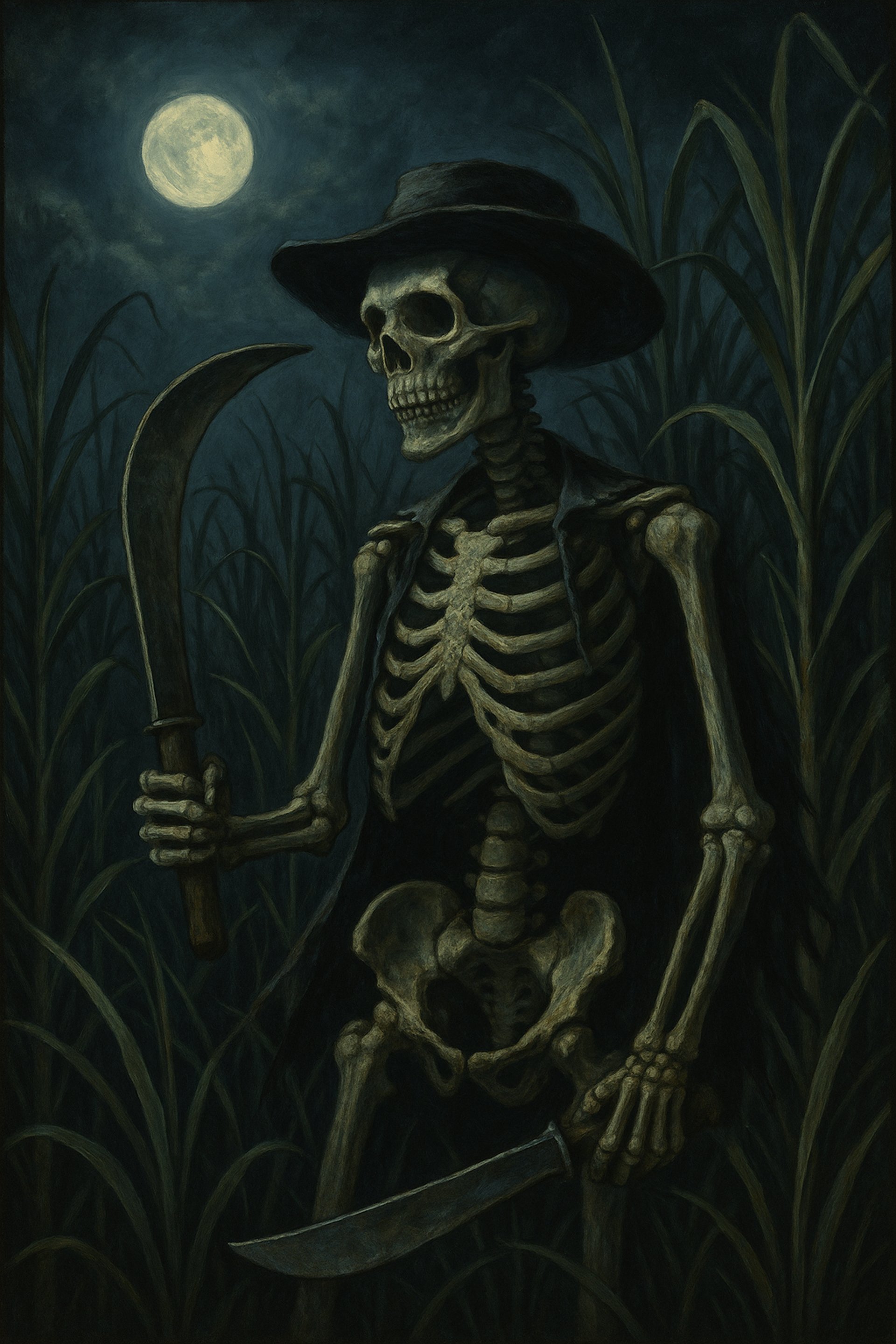
Death
XIII
Death... walking through the sugar cane fields where so many have labored and fallen.
Look at him there, moving purposefully through the tall cane, harvest tools in both hands. Not lurking or hiding, but striding openly under that full moon. In New Orleans, we don't turn away from Death—we pour him a drink and pull up a chair. We second-line behind his brass band. We build him beautiful cities of tombs above the waterline.
This moon illuminates everything—nothing remains hidden in its glow. The skeleton doesn't need sunlight to see clearly; truth becomes more evident in darkness.
Those sugar cane fields hold our city's complicated history. The sweetness we crave built on bitter toil. Fortunes made from broken bodies. Death walked these fields long before our skeleton appeared with his knives.
When Death arrives in your reading, he speaks not of physical ending—though sometimes that too—but of necessary transformation. The sugar cane must be cut to yield its sweetness. The old growth must fall to make way for new planting.
There's something in your life that has reached its natural conclusion. A situation, a relationship, a belief, a chapter that must close decisively. Our skeleton doesn't ask permission with his blades—he harvests what is ready, what has fulfilled its purpose, what must now return to the soil.
New Orleans understands endings better than most places. We've rebuilt after fires, after floods, after storms that should have washed us away entirely. We know that Death is not the final word—it's merely a transition, a doorway, a change of costume before the next act begins.
There's no need to fear this figure in your path. In our traditions, in our Voodoo ceremonies, the loa Baron Samedi—keeper of the cemetery crossroads—is often a figure of ribald humor as much as solemn transition. Death reminds us to live fully, to taste every flavor, to dance while the band is still playing.
What has reached its natural conclusion in your life? What must you release with clean, decisive cuts? What sweetness might come after the necessary harvest?
The moon will guide you through this transition. Its light reveals what must end, yes, but also illuminates the path forward. After the cutting comes new growth. After the funeral comes the second line, handkerchiefs waving, celebrating the soul's journey onward.
Remember this: In New Orleans, we bury our dead with music. We acknowledge the pain of letting go while still affirming that life—changed but persistent—continues its procession through the streets.
I hold your gaze with calm certainty.
The sugar cane will grow again. More abundant for having been cut back to its roots.